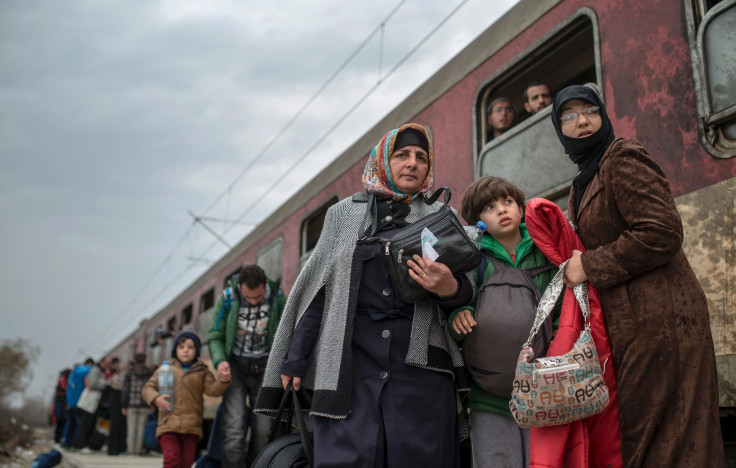Refugee Crisis: EU Ministers To Meet In Brussels As Internal Differences Widen

Interior ministers from the European Union will meet in Brussels Thursday to discuss measures to curb the burgeoning flow of refugees through the Balkans. The meeting — to be held just a day after Austria announced a cap on the number of asylum applications and Hungary announced a referendum on refugee quotas — will also be attended by officials from non-EU members Serbia, Macedonia and Turkey.
The EU remains deeply divided over how to handle the massive influx of refugees, as well as over recent border closures by several member states — a move that has threatened to unravel the 28-nation bloc’s much-touted passport-free Schengen agreement. According to some reports, Thursday’s agenda would also include extending internal border checks within the EU member nations and a proposed European coast guard.
“We call on all countries and actors along the route to prepare the necessary contingency planning to be able to address humanitarian needs, including reception capacities. In parallel, the [European] Commission is coordinating a contingency planning effort, to offer support in case of a humanitarian crisis both outside and within the EU, as well as to further coordinate border management,” Dimitris Avramopoulos, European commissioner for migration and Klaas Dijkhoff, Dutch minister for migration, said in a joint statement released Tuesday, warning that a “humanitarian crisis” loomed if immediate action is not taken.

According to the International Organization for Migration (IOM), over 110,000 refugees have reached Europe’s shores this year after undertaking perilous journeys across the Mediterranean. Last September, EU ministers finalized plans to relocate 120,000 migrants from Italy, Greece and Hungary to other EU countries, but the decision was opposed by Romania, the Czech Republic, Slovakia and Hungary.
Meanwhile, Greek Prime Minister Alexis Tsipras on Wednesday warned that Athens would block any agreement that sought to turn Greece into “a permanent warehouse of souls.”
“Greece will not agree to deals (in the EU) if a mandatory allocation of burdens and responsibilities among member countries is not secured,” Tsipras reportedly said, even as Austria — in defiance of international criticism — took steps to coordinate a raft of fresh border restrictions across the Balkans.
“We will not tolerate that a number of countries will be building fences and walls at the borders without accepting even a single refugee. … Greece will demand the mandatory participation of EU countries in the relocation of refugees,” Tsipras said. “We will either be in a union of common rules for all or everyone will do [as] they please — we will not accept the latter.”
Greece is the arrival point for an overwhelming majority of refugees who enter Europe through the Mediterranean. According to the IOM, over 102,000 refugees — most of them from war-ravaged nations of Syria, Afghanistan and Iraq — have arrived in Greece by sea this year.
© Copyright IBTimes 2024. All rights reserved.












